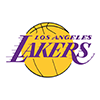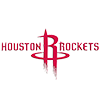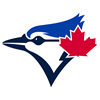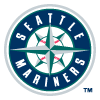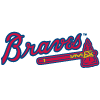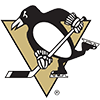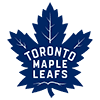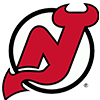Where Have All The Reliable Closers Gone?
Welcome to the days of whine and closers. If you have played fantasy baseball for any length of time, you can remember when drafting closers was relatively easy. You scanned the closer list, one per team, and selected the guy(s) you thought would ring up the most strikeouts, or provide the best peripherals. Maybe you drafted two, and then you waited until someone got hurt or lost the job, and hoped you could be the first to claim the deposed closer's well-known replacement. Focus on the rest of the draft, and be confident saves are covered. Now, the world is different. There is enough turmoil at the back of so many bullpens, that I always have plenty to write about in the End Game Odyssey section. So, what's a fantasy owner to do? Can the saves category still be a category to find an edge? Let's take a look.
Looking for a closer you can plug and play
Oh for the days of plug-and-play. Unfortunately, there is little to suggest those days will be back, at least not any time soon. There are several reasons, and most of those reasons intermingle. Without question, the first item on the list is injuries, and the list of closers who have avoided that problem gets shorter every day. The skills that make the best closers also make them somewhat riskier when it comes to injuries. Most feature a couple of front-line pitches - a fastball, sometimes
Where Have All The Reliable Closers Gone?
Welcome to the days of whine and closers. If you have played fantasy baseball for any length of time, you can remember when drafting closers was relatively easy. You scanned the closer list, one per team, and selected the guy(s) you thought would ring up the most strikeouts, or provide the best peripherals. Maybe you drafted two, and then you waited until someone got hurt or lost the job, and hoped you could be the first to claim the deposed closer's well-known replacement. Focus on the rest of the draft, and be confident saves are covered. Now, the world is different. There is enough turmoil at the back of so many bullpens, that I always have plenty to write about in the End Game Odyssey section. So, what's a fantasy owner to do? Can the saves category still be a category to find an edge? Let's take a look.
Looking for a closer you can plug and play
Oh for the days of plug-and-play. Unfortunately, there is little to suggest those days will be back, at least not any time soon. There are several reasons, and most of those reasons intermingle. Without question, the first item on the list is injuries, and the list of closers who have avoided that problem gets shorter every day. The skills that make the best closers also make them somewhat riskier when it comes to injuries. Most feature a couple of front-line pitches - a fastball, sometimes one they cut, and a wicked slider, would be the most common, and that slider, thrown with max effort is a frequent contributor to elbow problems.
And, max effort - the tendency to make every pitch a wipeout offering - contributes as well. Closers don't pace themselves. They are asked to come into a game, protecting a slim lead, and their job is simple. End the game with no damage. That usually means every pitch they throw is high stress - both physically and emotionally. They might pitch three days in a row, and then not pitch for a week, which can be problematic, and even if they get some non-save work in waiting for their next closing opportunity, it isn't the same. We've all suffered through an implosion when our closer was asked to pitch an inning when there was nothing on the line. That's not always easy for a closer. It's also why great set-up men don't always make great closers.
If you agree that closing is a volatile assignment, you have to be ready to spot the closer in waiting. Handcuffing is becoming an art. It can be a difficult thing to predict. There are some excellent eighth-inning arms who have been a disaster when asked to close. They may not have the psychological make-up for it. High adrenaline levels and thick skin are prerequisites for closing duties. Furthermore, closers often have to work multiple days in a row, and some relievers just aren't able to do that effectively over the long term.
Finally, there has been a shift in the back story of many closers. Previously, many were converted starters with a power arm who were unable to develop a third or fourth pitch. Closing and the stresses that come with it were relatively new to them, and they had "virgin" arms that probably didn't have the high mileage. Today, the closers are often groomed in college, and in the minor leagues, so they may arrive in the major leagues with less resilient elbows. They have the advantage of experience, albeit at a very different level, but they may have paid for that experience physically.
Some Potentially Top Tier Closer Characteristics
• There are a handful of plug-and-play closers - reliable guys like Craig Kimbrel, Mariano Rivera, Jonathan Papelbon and now Jim Johnson, but remember even these pitchers can pop up with an injury, or even unexplained lack of performance. Ask owners of Rivera, Joakim Soria, Jason Motte or Ryan Madson, to name just a few. To stay ahead of the game, you have to constantly watch the trends in closing games, watch for signs of injury, even before anything is announced, and most of all, keep very close tabs on the reliever who is most likely to be next in line behind any closer on your roster.
• Just be careful. The next in line might not be the consistently reliable eighth-inning set-up guy. When Huston Street goes down, the Padres resist handing the closer duties to Luke Gregerson, and the Giants went to extraordinary measures to avoid taking Sergio Romo out of his eighth-inning role. The key is to identify the possibilities they don't want to close, and then re-evaluate based on the best options beyond those guys. It's a reverse analysis, but it works.
• This will be short and blunt. Money speaks loudly. If a team bestows a massive contract on a relief pitcher, he is likely to have a MUCH longer leash than a non-descript guy who was tried in the role with mixed results. Teams don't like to be wrong, especially when there is a lot of money involved.
• Not always, but often, you will be looking for a pitcher with electric stuff, but it's typically only a couple of pitches. Managers like pitchers with a wider array of pitches to go earlier in games, and sometimes to pitch multiple innings. High strikeout rates are preferred, but mental toughness is at least as important. I keep a list of "this guy has a closer's make-up" for review when needed.
• Lastly, poor splits against one hand can make a pitcher far less appealing. When the ninth inning comes around, the manager wants to hand the ball to his designated closer, even if he is right-handed, and there are three lefty swingers due up. A guy who struggles against one hand, is far more likely to be deployed when there is a match-up advantage, and closing doesn't always provide that.
Some Notable Rotation Happenings
Josh Johnson (TOR) - An MRI on his injured triceps came back negative, but you have to be concerned about a pitcher with his injury history. He shows flashes of what he once was, but he's still inconsistent and remains a risky addition to a fantasy rotation. He should be back relatively soon, but he is more name than substance now.
Ervin Santana (KC) - I watched a couple innings of his starts against Cleveland and Tampa Bay, and it was honestly the best I have ever seen him throw. I was impressed. He, James Shields and Jeremy Guthrie have gotten off to great starts, but I am going to throw out another name who is making a big difference for them - Salvador Perez.
Roy Halladay (PHI) - He's on the disabled list with shoulder issues and a variety of other ailments. A return this year doesn't sound too promising. I hate shoulder injuries because they are unpredictable, they often linger, and full recovery is never a sure thing.
Yu Darvish (TEX) - The Rangers say they are limiting Darvish to about 130 pitches per start. That is almost unheard of, but he has shown he can handle it so his owners can possibly benefit from a couple more wins as he lasts deeper into games.
Chris Capuano (LAD) - He posted an ugly line in his first start back, but I think he can still be a reasonably productive back-of-the-rotation starter. Home runs have haunted him, and he is the pitcher Paul Goldschmidt dreamed of while growing up, but once he gets settled in, he can be a nice match-up pitcher for your fantasy team.
Jarrod Parker (OAK) - He left his last start with neck stiffness, which has bothered him all season. It could have been more acute after watching the four home runs he allowed sail over his head. His velocity is down, and his pitches lack life, both of which could be injury related, so it would be best to take a wait and see stand with him.
Eric Stults (SD) - He has turned in back-to-back solid outings, but they have come against the Cubs and the Marlins. I never used to lend much weight to the opponent when a pitcher turned in a solid outing, but the Marlins have changed that design.
Felix Hernandez (SEA) - Unlike Darvish in Texas, the Mariners appear to be taking it easy with their ace's workload. He has been truly dominating the past few starts, but even though he hasn't exceeded 100 pitches, he has not gone out for the ninth inning yet. If your league counts complete games, this cautious approach could hurt.
Philip Humber (HOU) - After one of the worst starts to a season in recent memory, Humber is headed for the bullpen. Dallas Keuchel will take his spot for now, but he isn't a fantasy find, so wait for Jarred Cosart before even thinking about adding an Astros starter beyond Lucas Harrell and Bud Norris.
Ian Kennedy (ARZ) - If I had to pick a pitcher, off to a slow start, as someone to target in a trade acquisition, Kennedy would be near the top of the list. I've watched a couple of his starts, and he is walking a fine line between very good and mediocre command. His history suggests the very good will surface soon.
Endgame Odyssey
Just when you think things are getting settled in Kansas City, Greg Holland throws a clinker into the mix. Kelvin Herrera hasn't been any better, and I am still clinging to the Aaron Crow plan. ... In Boston, Andrew Bailey had the closer's job to run with, and promptly ended up on the disabled list, handing the reins back to Joel Hanrahan, who is now hurt too. Junichi Tazawa or Koji Uehara will be next on the list, but Uehara is also fragile so the Red Sox likely will be careful with his workload. ... I am fairly convinced Addison Reed will ultimately end up being one of the premier closers in the game. He's headed in that direction. ... Barring any setbacks, the Cubs should have Kyuji Fujikawa back soon. They say they are leaving Kevin Gregg in the closer's slot, but it would be surprising to see that last very long once they have a viable option. ... The Dodgers' Brandon League has one of those big-contract long leashes, but the choke collar has to be feeling a bit snug. Kenley Jansen owners should be ready. ... Tuesday night J.J. Putz left the game in the ninth inning after experiencing elbow stiffness. He is going to miss time, and I think the Diamondbacks will go to Heath Bell over David Hernandez or Matt Reynolds. After some early fireworks, Bell has been solid, and that leaves Hernandez and Reynolds in familiar set-up roles. ... Ryan Madson may actually be getting close to a return in Anaheim. Expect them to ease him into closing duties.








